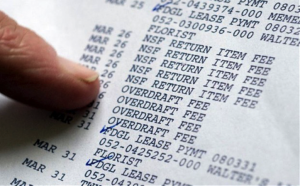Guest post by Dr. Lindsey Appleyard, Centre for Business in Society
Globally, the number of people with a transactional bank account is increasing. Owning a transactional account (with a bank, building society, co-operative or credit union for example) allows people to receive an income and make payments securely. The Global Financial Inclusion (Global Findex) database recently reported that:
‘The number of people worldwide having an account grew by 700 million between 2011 and 2014. 62 percent of the world’s adult population has an account; up from 51 percent in 2011’[1]
This growth is due to people in developing countries opening accounts and due to technological innovations such as mobile phone banking. The World Bank Group President Jim Yong Kim stated that:
“Access to financial services can serve as a bridge out of poverty. We have set a hugely ambitious goal – universal financial access by 2020 – and now we have evidence that we’re making major progress”[2]
The World Bank will now encourage the 2 billion people that remain unbanked around the world to open a transactional bank account and become financially included.
In the UK, the number of those individuals without a transactional bank account has fallen significantly from 1.87 million in 2011/12 to 1.5 million in 2012/13[3]. This is due to two key reasons. First, government Welfare Reforms and introduction of Universal Credit requires recipients to have an account to which the benefit can be paid. Second, The European Parliament have legislated that European citizens have a right to a Basic Bank Account under the Payment Accounts Directive (PAD)[4] by September 2016. So whilst these figures on increasing access to bank accounts are impressive, does this really mean that financial inclusion is increasing simply by increasing access to accounts?
Owning a transactional account does not necessarily mean that the account ‘will either be useful or be used.’ However, there is no data on this in the UK at this time. In our research on ‘responsible lending and borrowing’ with low to moderate income borrowers, we met many people that had a transactional bank account so were technically financially included. However, these individuals were still not fully financially included. Some people were self-excluded from mainstream banking services due to cultural factors such as lack of trust in the banks; or some did not fully engage with the financial services available to them, for example they did not use direct debits to pay their household bills and instead withdrew cash. Other individuals had been declined from accessing credit (overdrafts or loans) from mainstream sources which had led them to high cost credit such as payday loans, or home-collected credit. Some had been charged high default fees if they had gone into an unauthorised overdraft so avoided using their account.
Financial inclusion therefore is more than simply opening or owning an account, it is also important that the account is appropriate to the individual’s needs. Financial exclusion is therefore about access and use of financial services and products. It is false to suggest that people can be ‘lifted out of poverty’[5] simply by owning a transactional account.
In their latest report on financial inclusion in the UK, Rowlingson and McKay[6] suggest that being financially included is also dependent on having the following:
- ‘A secure income which meets a minimum standard’ (which provides not just food and shelter but the ability to participate in society);
- ‘Access to appropriate and well-regulated financial services, particularly transactional bank accounts, savings accounts, affordable credit, pensions and insurance products’; and,
- ‘Access to free and appropriate advice and education, particularly for those with debt problems’.
With a stable, sufficient income individuals (and households) are more likely to be able to save for the future and become financially resilient. It is false to say that financial inclusion is increasing simply because greater numbers of people have access to a transactional bank account, as for some people owning an account may increase their financial difficulties rather than reduce them.
[1] Demirguc-Kunt, A. Klapper, L. Singer, D. and Van Oudheusden, P. (2015) The Global Findex Database 2014 Measuring Financial Inclusion around the World. World Bank Policy Research Working Paper 7255.
[2] http://www.worldbank.org/en/news/press-release/2015/04/15/massive-drop-in-number-of-unbanked-says-new-report
[3] Rowlingson, K. and McKay, S. (2015) Financial Inclusion Annual Monitoring Report. Friends Provident Foundation. http://www.birmingham.ac.uk/Documents/college-social-sciences/social-policy/CHASM/annual-reports/chasm-financial-inclusion-monitoring-report-2015.pdf
[4] http://europa.eu/rapid/press-release_MEMO-14-300_en.htm
[5] Ibid.
[6] Ibid. page 8




Comments are disabled